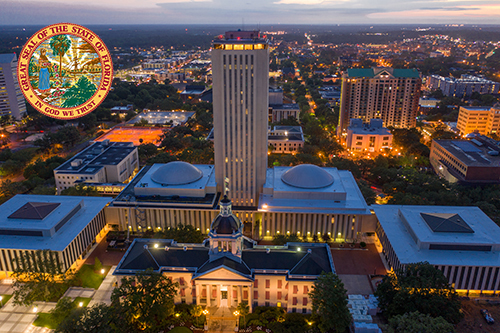 Florida, which became the fastest growing state for the first time since 1957, has a labor shortage. That labor shortage just got exacerbated with Florida’s new immigration law, according to the article, A labor shortage is holding back Florida’s growth. Here’s why it could stay that way.
Florida, which became the fastest growing state for the first time since 1957, has a labor shortage. That labor shortage just got exacerbated with Florida’s new immigration law, according to the article, A labor shortage is holding back Florida’s growth. Here’s why it could stay that way.
With Florida’s growth comes the need for new construction.
"Just because you see a lot of construction projects going up, it doesn't mean they don't have a labor shortage problem. I guarantee you that they do," said Anthony Viscomi, co-owner of Viscomi Construction in Ormond Beach.
There are many underlying factors to the labor shortage in Florida. In the Great Recession in 2009 many workers in Florida were laid off and changed careers or moved to other states for other opportunities. Workers tend to retire at a younger age, and fewer young people are choosing to work in the construction industry. Higher wages may help, but construction firms are competing with fast-food chains that are also increasing wages.
“Industry leaders and economists agree there is one thing that could help bring an earlier end to the labor shortage: loosen U.S. immigration laws to make it easier for foreign-born workers to become employed, as well as speeding up the process for them to become American citizens.
"We need to allow more employment-based immigration for employers who show they are not able to otherwise fill jobs," said Ken Simonson of the Associated General Contractors of America.
But Florida seems to be doing the opposite. Now, Florida’s new and controversial immigration law is not helping this situation. As part of the law, employers with at least 25 employees are required to use E-Verify to verify the immigration status of their employees during the onboarding process, starting July 1.
State lawmakers in this year's Legislative session passed SB 1718, a sweeping anti-immigration bill that Gov. Ron DeSantis signed into law in May and took effect on July 1. It imposes some of the toughest penalties and restrictions in the country on employers, forcing hospitals that accept Medicaid to ask patients about their citizenship and appropriating $12 million from the state's General Revenue Fund for the governor's "unauthorized alien transport program."
The article further points out that
A 2020 Census Bureau report estimated that immigrants accounted for 37% of all construction workers in Florida. In 2021, foreign-born workers accounted for 4.38 million of the Sunshine State's overall labor force, including an estimated 481,800 in the construction industry, according to the bureau's most recent population estimates program report.
In April, Evangelical leaders called on Florida legislators to reconsider this bill, but to no avail.
A link to more details about SB 1718 and a summary are provided below.
Summary:
Immigration; Prohibiting counties and municipalities, respectively, from providing funds to any person, entity, or organization to issue identification documents to an individual who does not provide proof of lawful presence in the United States; specifying that certain driver licenses and permits issued by other states exclusively to unauthorized immigrants are not valid in this state; requiring certain hospitals to collect patient immigration status data information on admission or registration forms; requiring the Department of Economic Opportunity to enter a certain order and require repayment of certain economic development incentives if the department finds or is notified that an employer has knowingly employed an unauthorized alien without verifying the employment eligibility of such person, etc. APPROPRIATION: $12,000,000


